– guests: Bri Warner & Chris Sherman –
In this series I speak with leaders fighting climate change, biodiversity loss, malnutrition and hunger through a focus on SYSTEMS CHANGE. Tune-in for a dose of optimism.
REGENERATIVE OCEAN FARMING

BRI WARNER
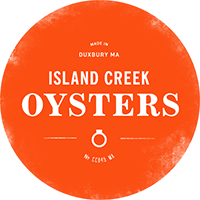
CHRIS SHERMAN
.
CORE SYSTEMS CHANGE: the 6-part miniseries >>
.
ep. 105: Bri Warner & Chris Sherman – Regenerative Ocean Farming
.
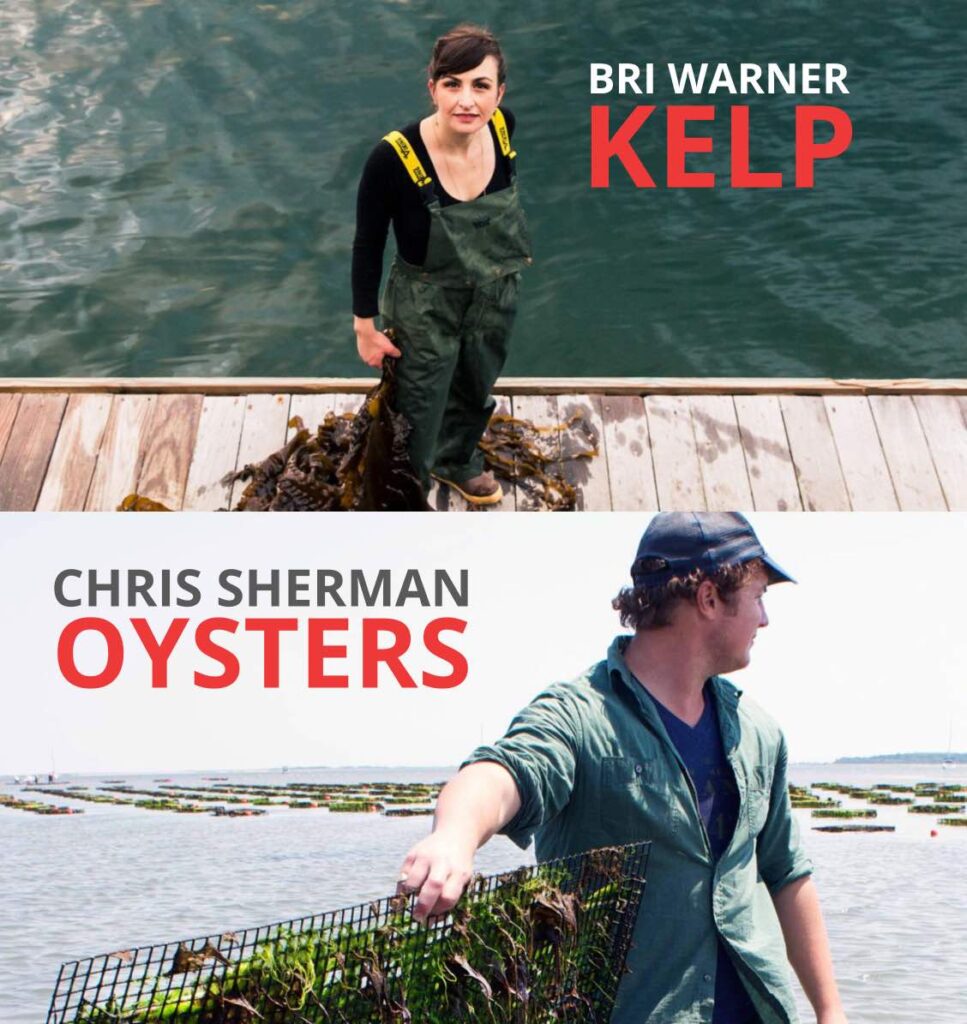
EPISODE 105: ‘Regenerative Ocean Farming’
Host: Aaron Niederhelman
Guest: Bri Warner, CEO & Pres. @ Atlantic Sea Farms
Guest: Chris Sherman, CEO @ Island Creek Oysters
.
.
This latest episode is about how to re-build a food system that creates quality sustenance for people, new jobs on working waterfronts and healthier oceans through the adoption of smarter management practices on regenerative ocean farms. Regenerative ocean farming is an aquatic farming system that grows seaweed and shellfish on no inputs. As is the case with terrestrial production, aquatic regen farming is all about investing in the ecological health of an ecosystem to create good food.
–
.
Regenerative Ocean Aquaculture
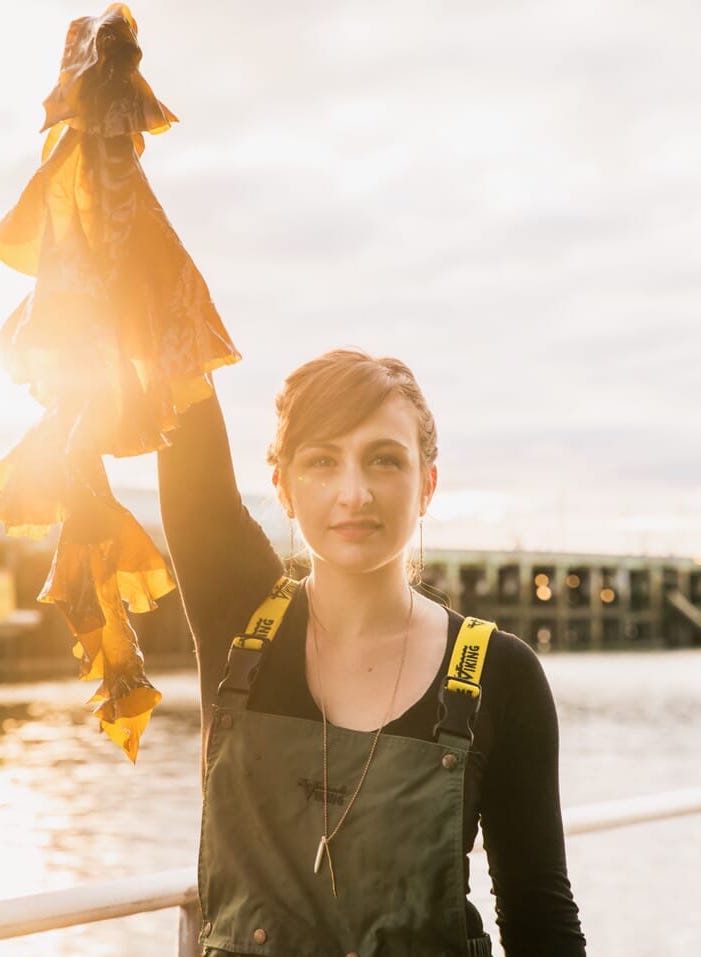
US seaweed pioneer Bri Warner shares in her experience of having to make a compelling business case for kelp production in coastal communities in Maine. Ahead of the curve, Warner has leveraged some creative methods and core business fundamentals to establish a whole new kind of values-based food production company. We discover that what she’s producing actually has a pretty unfair advantage in catching the eye of contemporary consumers over almost everything else in the food value chain.
“The three best foods that you can eat on the planet are (regenerative) aquaculture mussels, oysters and kelp. We’re all removing carbon from the water. We’re all doing this with zero arable land. Zero freshwater. Zero pesticides. The fact is, these three products grow more efficiently than any terrestrial food, especially any terrestrial food animal protein out there. What we can honestly say about these aquaculture products is that they’re actually making the planet better,” explains Warner – CEO & President of Atlantic Sea Farms.
.
.
feeding neighbors ✔️
employing communities ✔️
stabilizing the planet ✔️
.
.
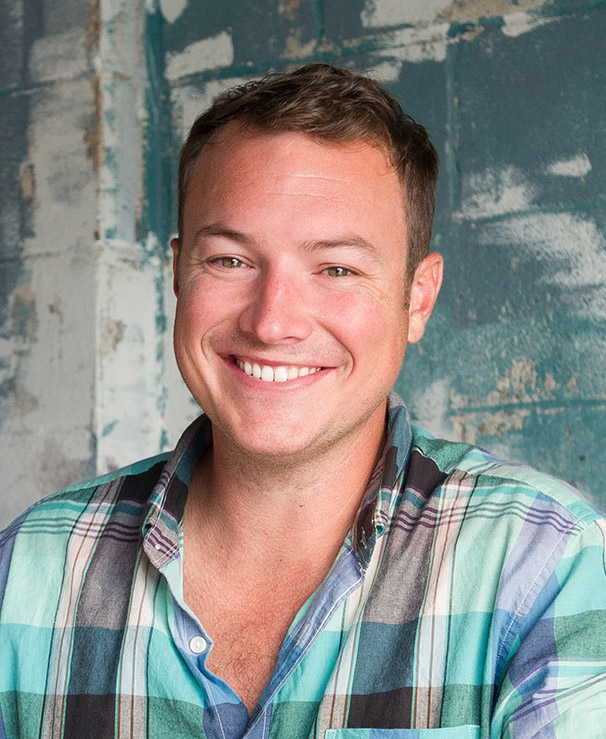
Island Creek Oysters (ICO) is a vertically integrated Regenerative Ocean Farming success story. They grow out their own oyster seed; they produce feedstuff algae to raise oysters; they sell that seed to other growers; they operate their own farms that grow-out seeds from adolescence -to- maturity; they aggregate & distribute mature oysters to diverse retailers and food service relationships – including their own restaurants; they invest in preserving and improving the marine ecological systems that grow their crops; they offer an experience for anyone to share-in the stories of their food with the community that produced it.
“Through its benefit for the economy. The social, cultural and gastronomic benefits that we all get, and all of the nutritional values this seafood offers. And, the environmental gain – which gets at the concept of adding value back into the ecosystem from which we depend on to produce good food. This all culminates in us supporting the concept of ‘coastal communities’, which is core to our mission and values at Island Creek Oysters,” says Chris Sherman – ICO CEO and Eisenhower Fellow.
–
“We’ve built incredible demand for kelp, but we’re doing something completely new here for US markets.”
BRI WARNER, CEO & PRESIDENT @ ATLANTIC SEA FARMS
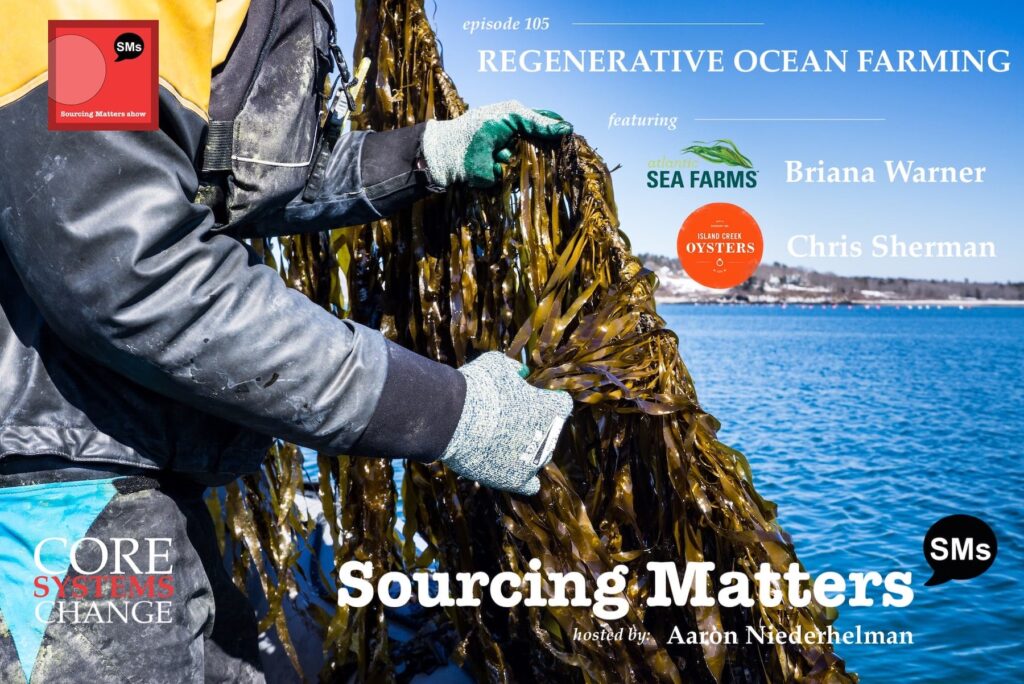
social media tile
.
How Regen Business Backs The Planet
As for environmental restoration, oysters grown not for consumption have become part of the equation for producers like ICO. Each mollusk can filter up-to 50 gallons of seawater a day, oysters bond together to create natural reefs that protect shorelines and cities, and these shellfish act as great neighbors in estuaries to keep oceans thriving with other keystone species and biodiversity. Sherman explains how they support NGO-backed restoration projects through a few different channels. But always interested in pushing the envelope, Sherman is evaluating how the farms can work in lockstep with restoration projects to instigate more environmental action for the industry.
“We harness the power of private industry and profit to scale environmental impact. One of the things that we focus on is validating some of the claims that we make as an industry about the positive impacts of commercial farms. The questions that we’re trying to answer include: How do farms stack up to natural oyster reefs? How do farms compare to synthetic reefs brought online in restoration projects? How do we optimize nitrogen removal, and deliver habitat creation? Through scientific methods, we’re on a path to quantify the ecosystem value of commercial shellfish farms,” explains Sherman.
.
An Innovation Economy Supporting Community
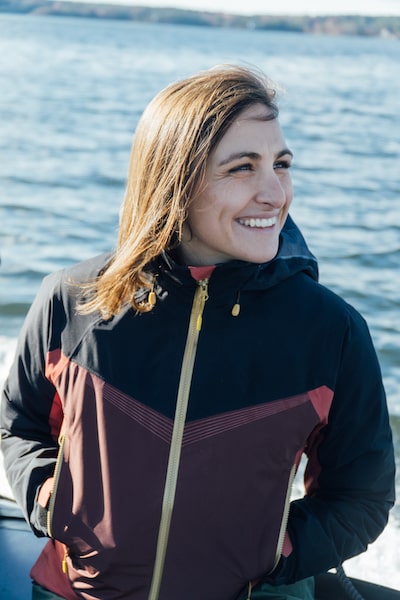
Warner has built a creative business model that employs Maine lobsterman as her production team of this line-grown kelp coming from the clean, cold waters of the North Atlantic. With over 4000 boats working in the Maine lobster industry, Bri sees kelp production as a mutually beneficial relationship that offers existing boat owners a new revenue stream without requiring additional equipment or extensive operating expenses.
The approach has been so successful that when Warner first took over as CEO of Atlantic Sea farms in 2018 the company was sourcing 30,000 lbs. of seaweed a year. Now, after building-out the required processing infrastructure, finding new markets ripe for this next super-food, and via that creative approach to employ a lobstermen workforce in their off-season – Atlantic Sea Farms will harvest 1.2 Million lbs. of human-grade kelp this year alone. With plenty of capacity to grow. As we’ve seen in our stories before, there are many creative ideas generating on the innovation economies of Regen farms.
–
.
hear how Regen Ocean Farming shapes collective consciousness
.
Listen-in to the full conversation with Bri, Chris, and Aaron as they discuss how we can achieve good for the people and planet through smarter ocean management on regenerative ocean farms.
.
.
photo credit: Island Creek Oysters & Atlantic Sea Farms
.
.
the rich & lasting benefits of:
CORE SYSTEMS CHANGE – content series
The thing is… all sorts of folks will be embracing the values gained from good food and its production. Good food is simply an investment in your own personal health and performance. It’s also a venue to take real climate action in every bite, and a daily dose of benevolence for the folks that keep us well. Good food is a boom-town innovation economy that’s ripening to become invasive throughout verticals and global marketplaces. That’ll begin as more local jobs, and with regional food security.
–

–
.

.
COMPLETE SERIES >> CLICK
.
,.


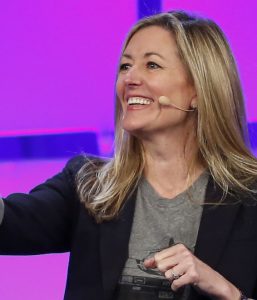 Prior to her current work, Kathleen served as a lead organizer of The Engine, an MIT initiative created to advance innovation. This venture fund and accelerator program was created to provide comprehensive support to transformative ideas from the formative stage to their most effective implementation. Kennedy was also awarded the Folio: 40, which recognizes the most innovative and influential people in the media industry, and named by the Harvard Club as one of Boston’s Most Influential Women of 2017.
Prior to her current work, Kathleen served as a lead organizer of The Engine, an MIT initiative created to advance innovation. This venture fund and accelerator program was created to provide comprehensive support to transformative ideas from the formative stage to their most effective implementation. Kennedy was also awarded the Folio: 40, which recognizes the most innovative and influential people in the media industry, and named by the Harvard Club as one of Boston’s Most Influential Women of 2017.
 Through the vertical integration of their thriving Oyster farms, a successful distribution company and world-renowned retail outlets – these “New American Farmers” have developed a sustainable model of sustenance and jobs for their community in Massachusetts, and the North Atlantic. Levering these ocean smarts to do greater good, Chris also curates the Island Creek Oyster Foundation, a non-profit which has codified a replicable model of aquaculture for the developing world.
Through the vertical integration of their thriving Oyster farms, a successful distribution company and world-renowned retail outlets – these “New American Farmers” have developed a sustainable model of sustenance and jobs for their community in Massachusetts, and the North Atlantic. Levering these ocean smarts to do greater good, Chris also curates the Island Creek Oyster Foundation, a non-profit which has codified a replicable model of aquaculture for the developing world.